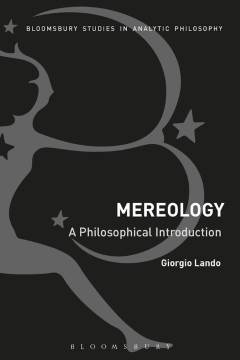Repository | Book

Bloomsbury, London
2017
240 Pages
ISBN 9781472583666
Parthood and composition are everywhere. The leg of a table is part of the table, the word "Christmas" is part of the sentence "I wish you a merry Christmas", the 13th century is part of the Middle Ages. The Netherlands, Belgium, and Luxembourg compose Benelux, the body of a deer is composed of a huge number of cells, the Middle Ages are composed of the Early Middle Ages, High Middle Ages, and Late Middle Ages. Is there really a generaltheory covering every instance of parthood and composition? Is classical mereology this general theory? Are its seemingly counter-intuitive features serious defects?
Publication details
Full citation:
Lando, G. (2017). Mereology: a philosophical introduction, Bloomsbury, London.
Table of Contents



